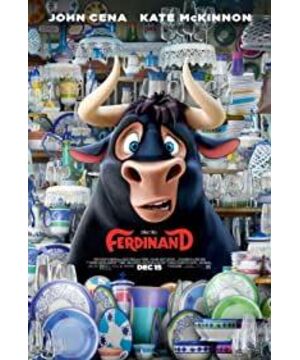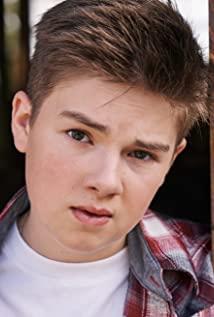So when a group of bulls and even little bulls in the movie dream of being a bullfight, I just don't understand it at all. If a child wants to be a bullfighter, maybe he can agree, but a calf wants to be a bullfighter and die, maybe this can only be defined as an ignorant and fearless. Of course, I still admit that my simple cognition and aesthetics of bullfighting cannot be mainly caused by cultural differences.
Ferdinand, the bull who loves flowers, can only bet his life by giving his life to the pity of people. This is not a kind of sadness. In the film, the love for friends, family, and life reflected by its little love for flowers successfully infected the audience, the breeders, and the bullfighters, and finally inspired people's pity, which made the film a success. It saves lives. But when we feel the greatness of this kind of love energy, we tend to ignore a cruel fact. This kind of love does not necessarily bring pity and sympathy. Aren’t there many counterexamples in life where resentment repays virtue?
A small flower, in order to release its kindness and love for life, works hard to open, it may be exchanged for the love of a strong man like Ferdinand who also loves life, and it may also be ruthlessly ravaged and trampled. , just like the ending of the little flower at the beginning of the film. The film encourages the audience to praise the bull who loves flowers. It one-sidedly emphasizes the so-called power of love. In fact, it inspires people's lamb attributes. They naively think that life is really beautiful. .
Every story about Xanadu will have flowers, because flowers are beautiful images. For Ferdinand, the bull's house is his real society, and the little girl's house is his paradise. The flowers that cover the ground in the paradise, looking beautiful, are actually a kind of beautiful danger, which makes people addicted and yearns, and essentially makes people escape and lose their fighting spirit. Those people who don't know about Wei and Jin in Tao Yuanming's writings are living in the so-called utopian world and escaping from reality.
So after Ferdinand has lived with the little girl for a while, he will eventually return to the Bull House. Of course, I hope that the little girl and that quiet world is more like a beautiful dream to Ferdinand, and finally, even after returning from the bullring, it will return to the real world. But obviously, the film still wants to continue this psychoanaesthetic effect to the end. Not only did Ferdinand go back to the little girl's house, but he also went with a group of his companions. Facing the mesmerizing mountain scenery and the big tree on the top of the mountain, which contrasted sharply with the gray slaughterhouse on the top of the bull's house, these bulls were afraid that they were going to be sheep collectively.
The bulls all ran away, and even the hedgehogs ran with them, and went to live in the Peach Blossom Garden. I wonder if the director of the film has taken into account the mood of the owner of the Bull House?
Animation Film Critics Club inside
View more about Ferdinand reviews











